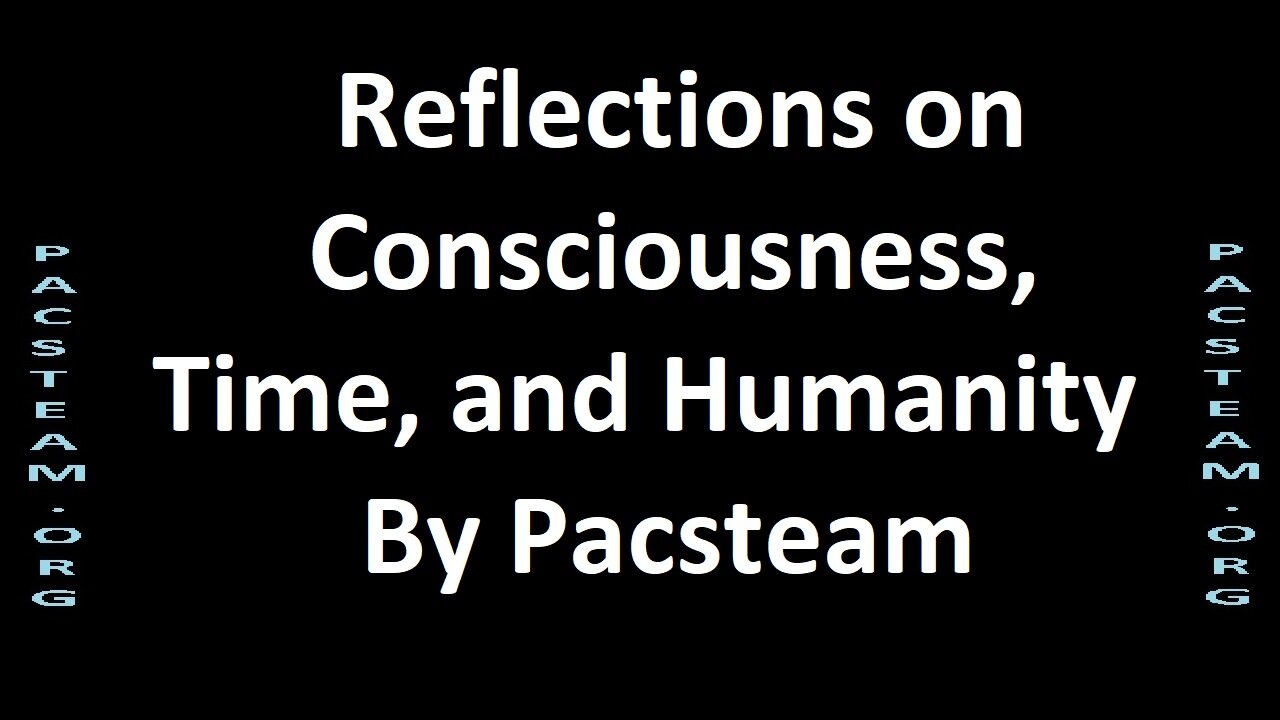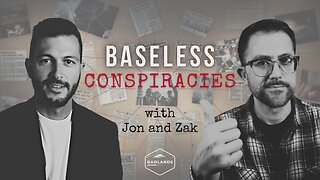Premium Only Content

Reflections on Consciousness, Time, and Humanity
Reflections on Consciousness, Time, and Humanity
You know, when I try to explain this, I realize how little language actually allows us to capture what we experience. Life feels linear, like a line stretched from past to future, but in truth, it barely scratches the surface of what full consciousness or true insight might even be. I see humanity as being in a stage where we have just begun to notice that we are largely blind and deaf to the universe. We are just now becoming aware that our senses, our perception, our understanding, it’s all extremely limited.
It’s like realizing that humans cannot see all the colors, that there are shades, forms, and vibrations that our brains simply cannot comprehend. Imagine giving sight to someone who has never seen — the brain cannot even process what it has never known. That is humanity, right now: capable of curiosity, capable of wonder, but fundamentally incomplete.
And that brings us to technology, AI, and these ideas about transhumanism. We stand at a threshold. One path is to accept that in our current form, we will never fully grasp the universe. But that doesn’t mean we are powerless. Technology, AI, these tools, they can expand the human experience, help us understand more, help us connect more deeply to knowledge, to history, to each other — without pretending we can become omniscient beings.
The other path is the temptation of godlike ambition: to imagine that with machines, with quantum computation, with hidden knowledge, we can surpass the limits of human consciousness, not for shared understanding, but for control. To see the universe, not as a mystery to explore ethically, but as a system to dominate. This is the dilemma — the question that underlies so many debates today, about ethics, AI, and the trajectory of human civilization.
And yet, I return always to the past. Because even though we cannot fully understand, even though time is an illusion — it is not truly linear — we have memory, we have history, we have knowledge. We can access the lives and thoughts of those who came before us, not to bring them back to life, not to simulate them as immortal entities, but to learn from their insight, their mistakes, their curiosity. Imagine asking Einstein about causality, or reading the private thoughts of a philosopher or activist, and seeing how their ideas evolved over decades. That is powerful. That is ethical. That preserves life’s wisdom without crossing into the impossible.
And maybe that’s the lesson: that the universe, life, consciousness, they are not puzzles to solve in the way a computer solves equations. They are experiences to be respected, explored, reflected upon. We must choose whether to let ambition override humility, whether to force ourselves into roles we are not ready for, or whether to use our understanding to nurture, to share, to expand without claiming to own.
So when people ask me, “Jakob, what’s the point? What should humanity do?” I tell them this: look, we are just awakening. We are realizing the scope of what we cannot see, what we cannot know. That is not failure — it is the beginning of responsibility. And AI, and our technology, and our curiosity, are tools to help us navigate that awakening. To reflect, to remember, to understand — without claiming the unattainable.
Because in the end, consciousness is not about domination. It is about insight. It is about connection. And the more we accept our limitations, the more we can learn. That is where the real power lies.
PLEASE SHARE
-
 3:53
3:53
pacsteam.org
20 days agoTheir New World Order Is For REAL - By Pacsteam
331 -
 8:13
8:13
GritsGG
12 hours agoMy Thoughts on BF6 & Warzone! Rank 1 Player Discusses!
942 -
 LIVE
LIVE
Lofi Girl
2 years agoSynthwave Radio 🌌 - beats to chill/game to
143 watching -
 1:47:20
1:47:20
Badlands Media
13 hours agoBaseless Conspiracies Ep. 154: The Death of Kurt Cobain – Murder, Media, and the Cover-Up
38.9K37 -
 2:04:08
2:04:08
Inverted World Live
8 hours agoRex Jones Calls In From The Gray Area | Ep. 122
41.9K5 -
 5:56:17
5:56:17
Rallied
10 hours ago $4.45 earnedBF6 with THE BOYS
41.2K4 -
 1:05:18
1:05:18
Flyover Conservatives
1 day agoThe SEAL-Turned-CEO Paying Off Millions in Veteran Medical Debt: JOIN THE MISSION! - Bear Handlon, Born Primitive | FOC Show
56.7K4 -
 5:02:21
5:02:21
Drew Hernandez
12 hours agoTRUMP'S GAZA PEACE PLAN PHASE 1 & TRUMP THREATENS PUTIN WITH TOMAHAWKS
36K22 -
 1:18:38
1:18:38
Glenn Greenwald
10 hours agoProf. John Mearsheimer on Trump's Knesset Speech, the Israel/Hamas Ceasefire, Russia and Ukraine, and More | SYSTEM UPDATE #530
126K84 -
 2:21:37
2:21:37
Tucker Carlson
8 hours agoAlex Jones Warns of the Globalist Death Cult Fueling the Next Civil War and Rise of the Antichrist
101K434